A Commercial Enterprise
What began as informal gatherings has evolved into commercial operations generating significant revenue, yet operating without the proper licensing, infrastructure, and safety measures required of professional events.
The Numbers
The following data represents a sample of events from 2024-2025, demonstrating the commercial scale of these operations:
New Year's Event (Dec 31, 2024 - Jan 1, 2025)
- Capacity: 450 person RSVPs
- Ticket pricing: $80-$120 (early bird to 2nd release)
- Revenue potential: $36,000 - $54,000 from ticket sales alone
- Note: All release tiers sold out
Winter Solstice Bush Ritual (June 20-22, 2025)
- Capacity: 100 camping passes, 250 parking passes (minimum 250 attendees, likely 400-450)
- Ticket pricing: $160-$250 standard tiers, up to $999.99 for VIP
- Additional revenue: $15 camping passes + $5 parking passes
- Revenue potential: $40,000-$112,500 from standard tickets (250-450 attendees at $160-$250), plus $1,500 from camping and $1,250 from parking fees
Freaks of Nature - Enchanted Forest (Nov 1-2, 2025)
- Ticket pricing: $35-$50 (early bird to final release)
- Note: Early bird tier sold out
This is a representative sample from just a few documented events. Multiple events occur throughout the year, multiplying the total annual revenue.
Conservative revenue estimates: Even at the lower capacity events (100-250 attendees) with mid-tier pricing ($40-$80), individual events generate $4,000-$20,000. Larger events with 400-450 attendees can generate $36,000-$54,000 in ticket sales alone—before considering bar sales, camping fees, parking fees, VIP packages, merchandise, or other on-site enterprise.
Evidence: Ticket Pricing
The following images show documented ticket pricing from various events, confirming the commercial nature of these operations:
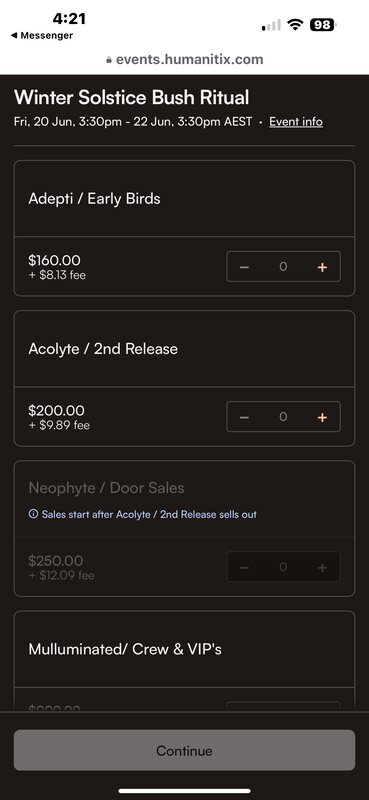
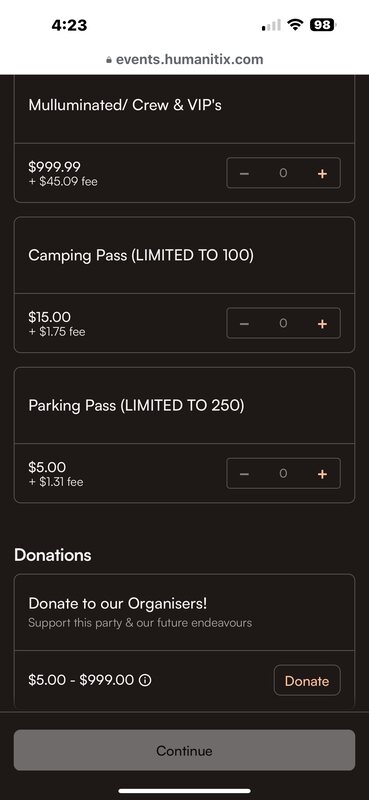
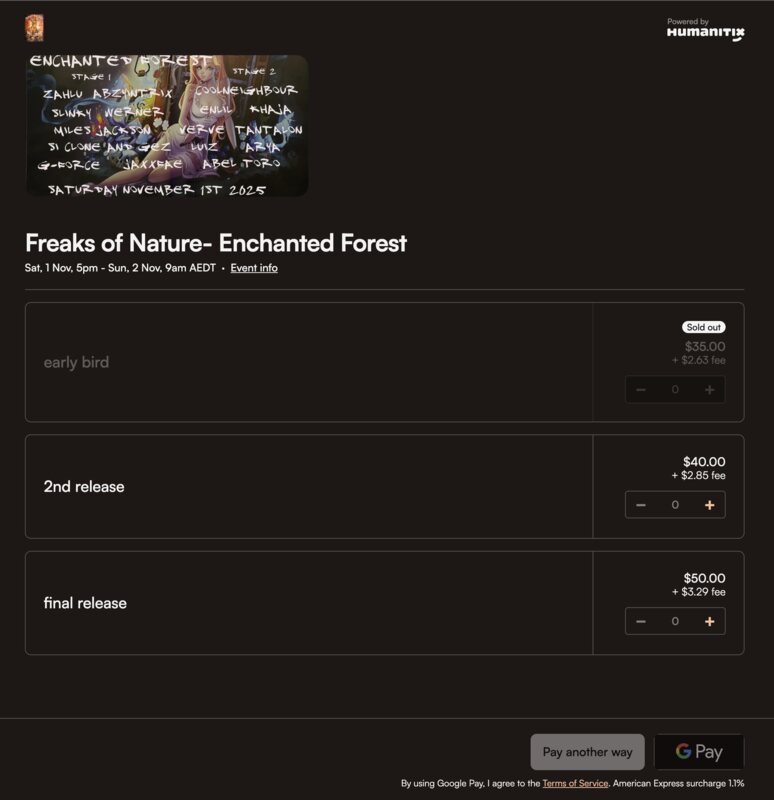
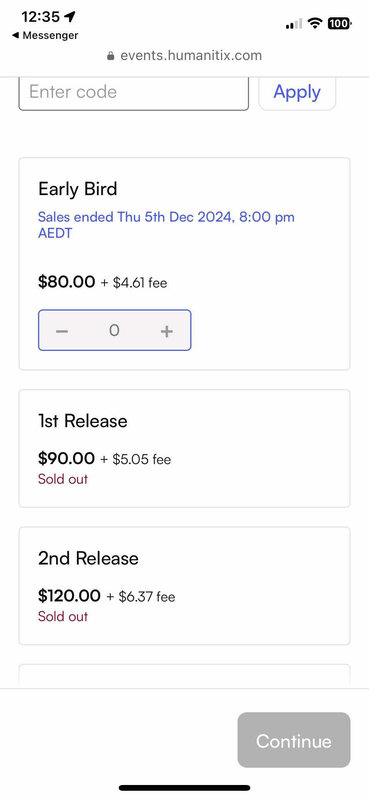
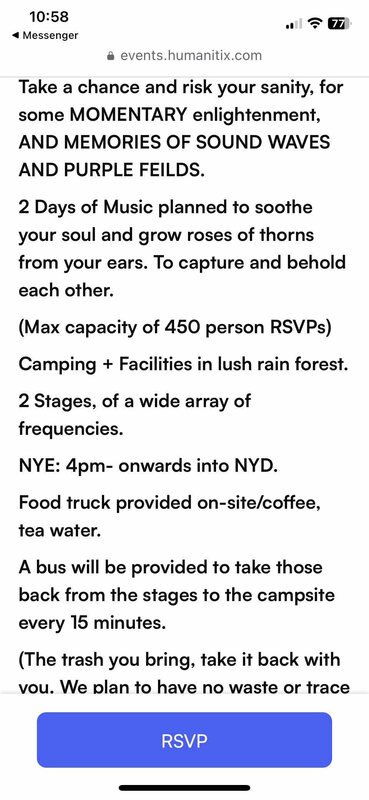
Small Festival Territory
Events of this scale and revenue are definitively in the territory of small festivals. They should be treated as such, with appropriate:
- Event permits and licences
- Insurance coverage
- Professional security
- Safety plans and emergency procedures
- Sanitation and waste management
- Traffic management
- Noise control measures
Infrastructure Requirements
If these are genuine festival operations, they need festival infrastructure:
- Private property with adequate capacity—no overflow onto public land
- On-site parking for hundreds of vehicles
- Designated camping areas with proper facilities
- Professional-grade toilets and waste disposal
- Clear access routes for emergency vehicles
- Sound engineering to minimise off-site impact
- Professional event staff and security
Lip Service vs. Real Safety
At best, lip service is being paid to these critical requirements. Even if events were completely contained on private land (which they aren't), the current approach to safety and infrastructure is inadequate for operations of this scale.
Regulatory Requirements
Events generating this level of revenue and attendance typically require:
- Council approval and event permits
- Compliance with noise regulations
- Public liability insurance
- Licensed security personnel
- First aid and emergency response plans
- Traffic management plans
- Environmental impact assessments
There's no indication that these requirements are being met.
The Informal vs. Commercial Distinction
When events were truly informal gatherings with no entry fee, the expectations were different. But once money changes hands on this scale, it becomes a business operation that needs to meet business standards.
You cannot:
- Charge festival prices
- Generate festival-level revenue
- Attract festival-sized crowds
...and then claim it's just a casual gathering that doesn't need proper oversight.
→ View Photo Gallery: Event Promotion Materials
Community Benefit?
When significant revenue is being generated, the question becomes: what is being put back into the community and the infrastructure that's being impacted?
- Are organisers contributing to road maintenance?
- Are they supporting local emergency services?
- Are they compensating neighbours for the disruption?
- Are they investing in proper facilities to reduce impact?
The evidence suggests the answer is largely "no."
The Bottom Line
If you're running a business—and at this scale with this revenue, you are—then operate like a professional business:
- Get the proper permits and licences
- Invest in appropriate infrastructure
- Hire professional security and safety staff
- Obtain proper insurance
- Engage meaningfully with the community
- Take responsibility for your impact
The current approach of generating substantial revenue while avoiding the responsibilities and costs of professional event management is neither sustainable nor fair to the community bearing the impacts.